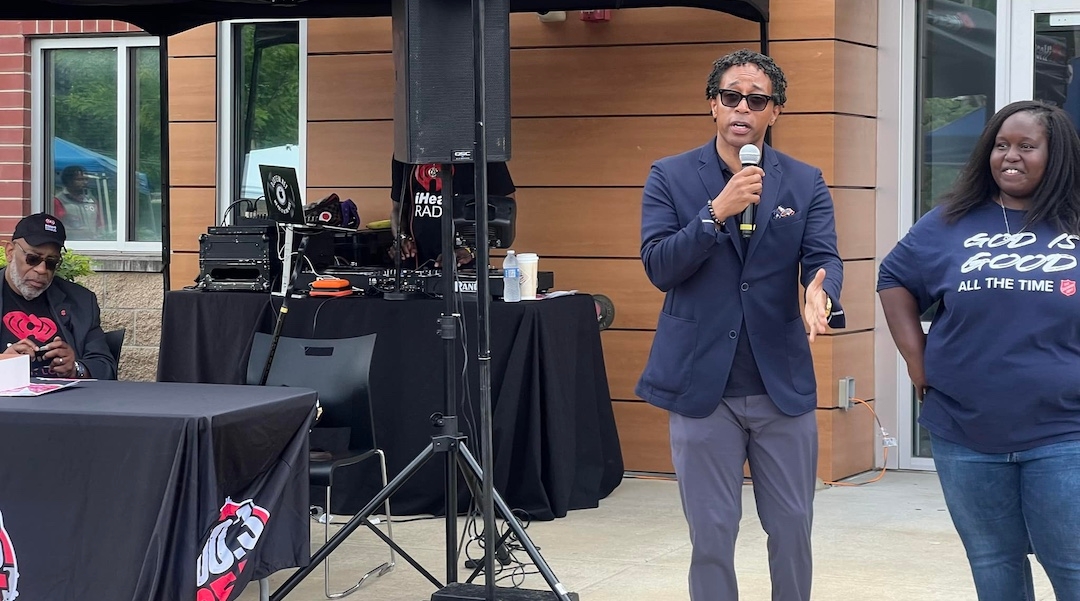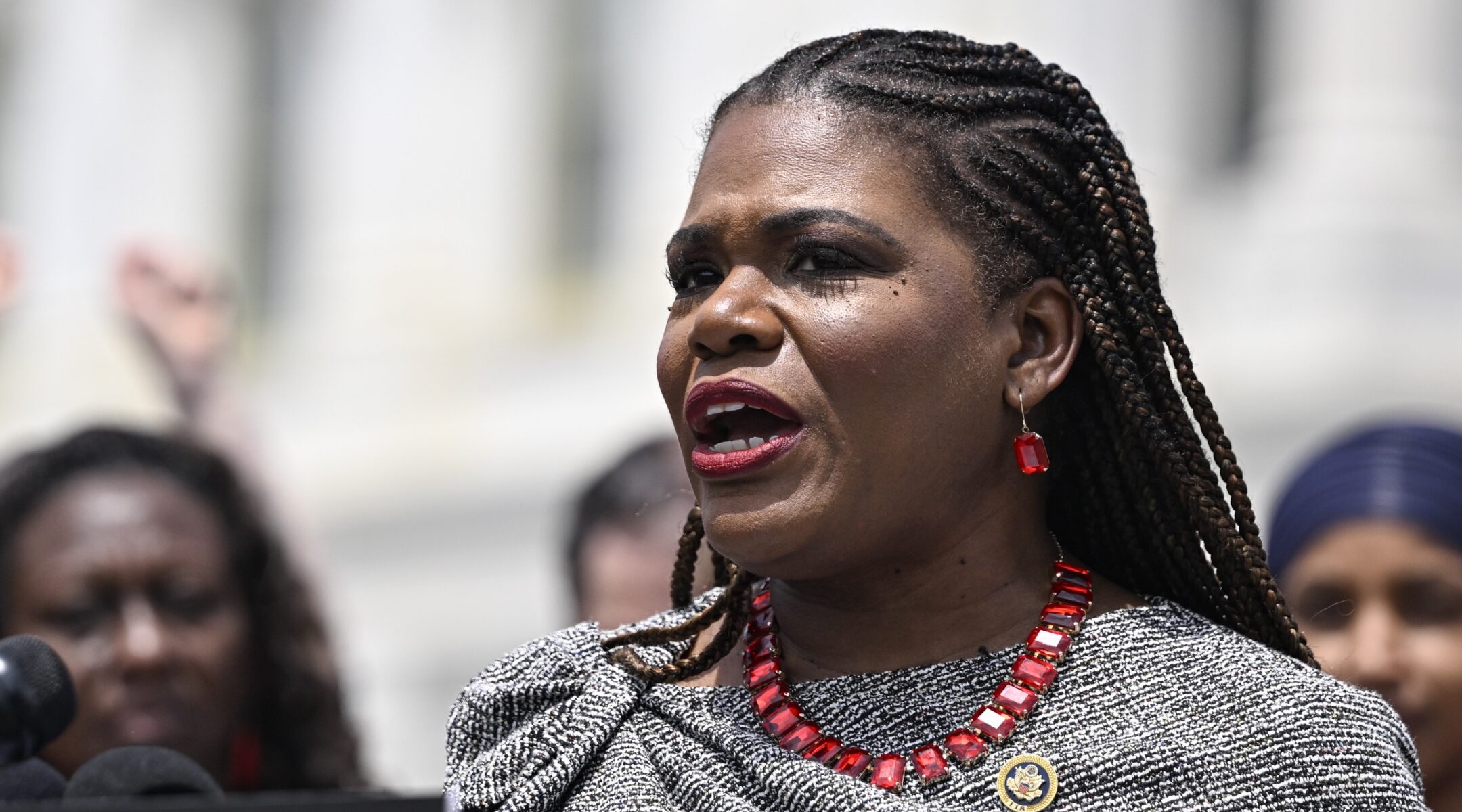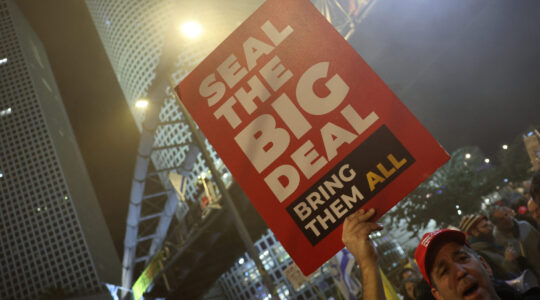WASHINGTON — Less than two days after AIPAC spent $14 million in a successful bid to send Rep. Jamaal Bowman packing in New York, the pro-Israel powerhouse texted a message to its followers: Their next target is Missouri Rep. Cori Bush.
“On Tuesday night, the pro-Israel community helped ensure anti-Israel Rep. Jamaal Bowman won’t be returning to Congress next year,” said the fundraising text the American Israel Public Affairs Committee sent Thursday afternoon. “With your support, we can also help defeat Rep. Cori Bush, another member of the anti-Israel Squad.”
Time was pressing, AIPAC said. “We have a short window to act.” Bush’s primary is Aug. 6.
Bush, whose district includes St. Louis, has much in common with Bowman: Each ousted a long-serving establishment Democrat in a 2020 primary, and both are members of the far-left Squad in Congress.
They are also both harsh critics of Israel, voting against emergency funding for Israel in its war against Hamas, and accusing Israel of committing genocide in Gaza.
“The U.N. special rapporteur just released a report showing strong evidence of genocide in Gaza,” Bush said on X, the platform formerly known as Twitter, in March. “Meanwhile, the Biden Admin signaled it’ll continue arming the Israeli government. Hollow words aren’t enough. We need action. Stop sending bombs.”
On Oct. 16, nine days after Hamas launched the war against Israel, massacring some 1,200 people inside the country and kidnapping more than 250, Bush introduced a resolution calling for an immediate ceasefire.
For AIPAC and other pro-Israel groups, that has made her a prime target, and has benefited her rival, Wesley Bell, a St. Louis County prosecutor. Now, Bowman’s ouster has emboldened Israel advocates, and has them craving another victory. Bush’s supporters also acknowledge that the races will resemble each other in significant ways.
“There’s no question, it’s a harder race, but it’s definitely a winnable race,” Mark Mellman, who heads the Democratic Majority for Israel, said regarding Bush. His group shared polling showing that Bell was losing by double digits in January, but is tied with Bush now.
“So he was 17 points behind before we spent any money, before anybody else spent significant money and this race is tied,” said Mellman, whose organization also runs a PAC.
The race in Bush’s Missouri district, which includes St. Louis, won’t be as expensive as the race in Bowman’s district, which includes much of Westchester County and a sliver of the Bronx. The ad market in the Missouri district is much less expensive — but the numbers are still eye-opening for a congressional primary.
Bell, as of the most recent filing, Bell has raised $1.72 million while Bush has raised $1.57 million. The AIPAC-affiliated superPAC, the United Democracy Project has, according to Politico, pledged to spend an additional $2.5 million on ads. (Super PACs may raise and spend unlimited amounts, but may not coordinate directly with a campaign.)
Bush anticipated the AIPAC-led push when she launched her reelection campaign in January.
“It’s called AIPAC,” Bush said then. “I need y’all to make it clear that they’re trying to buy this seat.”
AIPAC raises money “to help oust anybody who does not stand 100% with Israel in the way that means that Israel has to be supreme,” Bush said at her campaign opener, according to KSDK 5 News, an NBC affiliate.

St. Louis county prosecutor Wesley Bell speaks at a Salvation Army community fair in St. Louis, June 4, 2024. (Via Facebook)
Bush’s problem is that AIPAC’s campaign may be working, as per the DMFI poll.
“Bush is still seen favorably, but assessments of her and her performance are moving in a negative direction, while Bell’s image is improving, leaving him with an underlying image advantage,” said a memo from DMFI’s affiliated political consultancy, the Mellman Group. “With some six weeks to go and 11% still undecided, this race can go either way, but Bell has achieved a slight advantage.”
There are key differences between the Bowman and Bush races: Bell is known, but is not the household name that George Latimer, the Westchester County executive who beat Bowman, is in his own district.
Bowman also doubled down on emphatic anti-Israel rhetoric in a district with close to 150,000 Jews. Bush’s district does include many of St. Louis’ estimated 60,000 Jews, but they are not as influential as a voting share.
Bell, a leader in the movement of progressive prosecutors, also has issues Latimer did not, said Matan Arad-Neeman, a spokesman for IfNotNow, the non-Zionist Jewish movement that has vocally opposed AIPAC’s political involvement in Democratic politics.
“Cori Bush is quite popular among her constituents and she’s up against a candidate who was the campaign manager for an extremist anti-abortion Republican,” he said. Bell did manage a campaign for his Republican friend in 2006, and a number of Republican donors are backing Bell.
Arad-Neeman said it was “catastrophic” that Republicans should be able to influence a Democratic primary, including through donations to AIPAC’s affiliated PACs. He acknowledged that AIPAC was trying to repeat its successful formula in Bush’s district.
“It should be concerning to all of us that they’ll take the same playbook to St. Louis,” he said.
Bush also has vulnerabilities: She is under federal investigation for payments she made to private security, including to a security guard she eventually married. And she voted against President Joe Biden’s landmark 2021 infrastructure funding bill. Pro-Israel advocates leveraged Bowman’s no vote on that bill against him.
Like Bowman, Bush has singled out her Jewish backers at campaign events to push back against the claim she does not represent the community.
“You heard the progressive Jews of St. Louis up here, they understand my congresswoman is not antisemitic,” Bush said at the January event.
But like Bowman, she has fraught relations with much of the local Jewish community, earning an anguished rebuke from a broad array of Jewish groups spanning the political and religious spectrums last November when she accused Israel of ethnic cleansing.
“While there are characterizations within this letter that are unfair and simply untrue, we recognize that our Jewish neighbors are justifiably feeling frightened amid the horrific global rise of antisemitism,” her office told the St. Louis Jewish Light in response. (Bush also had declined to grant an interview to the Jewish Light, although virtually its entire readership now resides in her district.)
Maharat Rori Picker Neiss, who until December was the director of the St. Louis Jewish Community Relations Council, said there was a cost to not engaging with constituents.
“Any political official who doesn’t have a strong relationship with their constituency is somebody who is vulnerable in their position,” Picker Neiss said in an interview.
Still, said Picker Neiss, who now works for the Jewish Council for Public Affairs, it remained worthwhile for Jewish communities to reach out to representatives like Bush.
“It’s always tempting to want to talk to the people who already agree with us in some way or who are already aligned with us on issues,” she said. “But we don’t get to dictate who is in what job.”
JTA has documented Jewish history in real-time for over a century. Keep our journalism strong by joining us in supporting independent, award-winning reporting.






